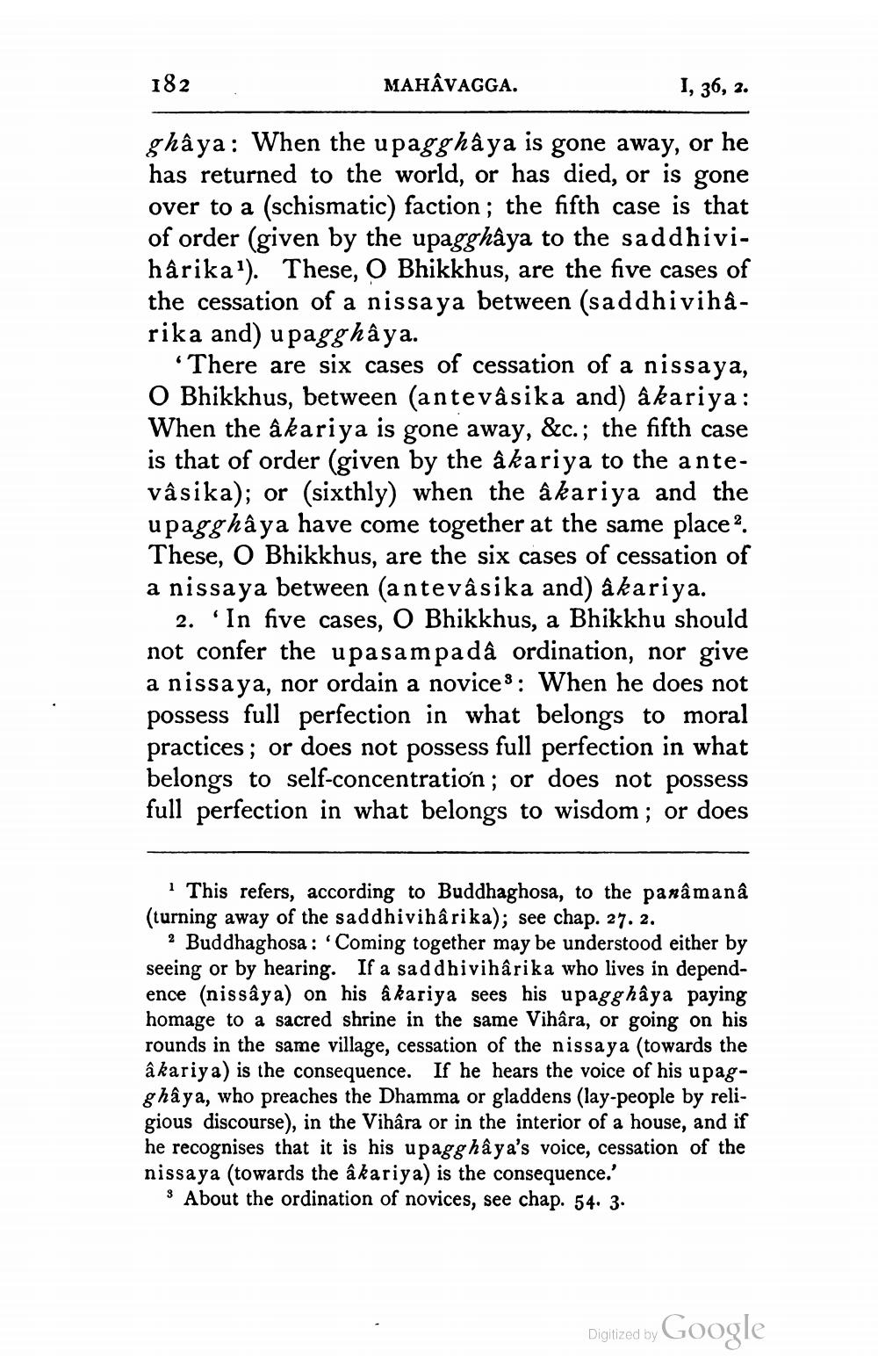________________
MAHAVAGGA.
I, 36, 2.
ghâya: When the upagghâya is gone away, or he has returned to the world, or has died, or is gone over to a (schismatic) faction; the fifth case is that of order (given by the upagghâya to the saddhivihârika1). These, O Bhikkhus, are the five cases of the cessation of a nissaya between (saddhivihârika and) upagg hâya.
'There are six cases of cessation of a nissaya, O Bhikkhus, between (antevâsika and) âkariya: When the âkariya is gone away, &c.; the fifth case is that of order (given by the âkariya to the antevâsika); or (sixthly) when the âkariya and the upagg hâya have come together at the same place 2. These, O Bhikkhus, are the six cases of cessation of a nissaya between (antevâsika and) âkariya.
182
2. In five cases, O Bhikkhus, a Bhikkhu should not confer the upasampadâ ordination, nor give a nissaya, nor ordain a novices: When he does not possess full perfection in what belongs to moral practices; or does not possess full perfection in what belongs to self-concentration; or does not possess full perfection in what belongs to wisdom; or does
1 This refers, according to Buddhaghosa, to the paЯâmanâ (turning away of the saddhivihârika); see chap. 27. 2.
2 Buddhaghosa: 'Coming together may be understood either by seeing or by hearing. If a sad dhivihârika who lives in dependence (nissâya) on his âkariya sees his upagg hâya paying homage to a sacred shrine in the same Vihâra, or going on his rounds in the same village, cessation of the nissaya (towards the âkariya) is the consequence. If he hears the voice of his upagghâya, who preaches the Dhamma or gladdens (lay-people by religious discourse), in the Vihâra or in the interior of a house, and if he recognises that it is his upagg hâya's voice, cessation of the nissaya (towards the âkariya) is the consequence.'
3 About the ordination of novices, see chap. 54. 3.
Digitized by Google




